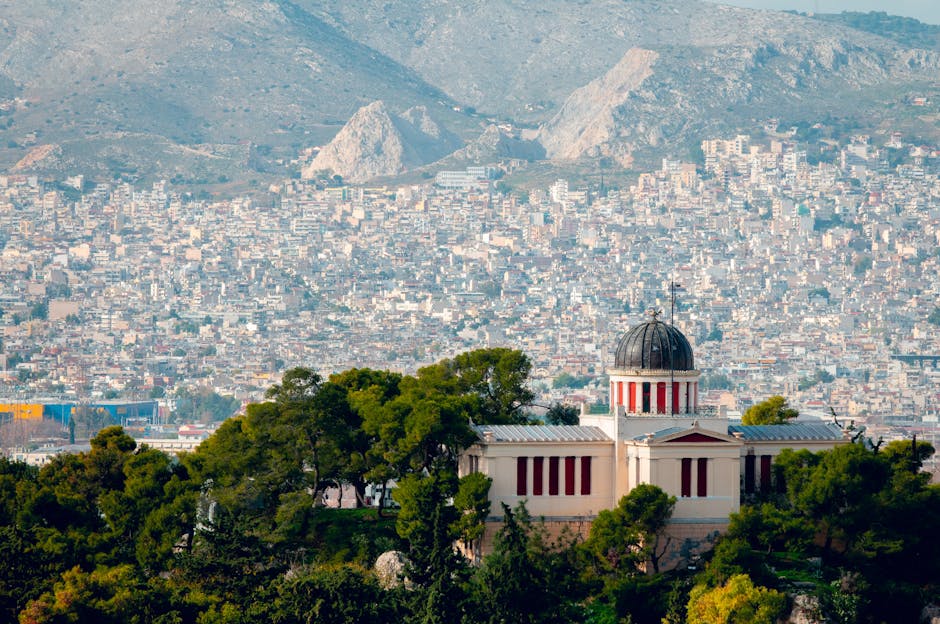AI’s Growing Threat to Greece’s Scientific Language and Cultural Heritage
The burgeoning field of artificial intelligence (AI) presents a complex challenge to Greece in 2025, threatening both its scientific language and rich cultural heritage. While AI offers transformative potential across various sectors, its rapid advancement raises concerns about the preservation and evolution of the Greek language, particularly within scientific and academic contexts. This necessitates a proactive approach from Greek authorities and institutions to mitigate potential negative impacts and harness the technology’s benefits responsibly.
The Erosion of Scientific Greek
The proliferation of AI-powered translation tools poses a direct threat to the precision and nuances of scientific Greek. These tools, while improving in accuracy, frequently struggle with the complexities of scientific terminology, often leading to mistranslations and the loss of subtle meanings crucial for accurate scientific communication. This is particularly concerning in specialized fields like medicine, engineering, and ancient studies, where precise terminology is paramount. The ease of using these tools could lead to a decline in the use and understanding of the scientific Greek language among researchers and students.
Impact on Academic Discourse
Furthermore, the increasing reliance on AI-generated content raises concerns about plagiarism and the overall quality of academic discourse. While AI can assist with research, the potential for misuse is significant. Students and researchers may inadvertently or deliberately plagiarize AI-generated text, undermining the integrity of academic work and the development of critical thinking skills vital for scientific advancement. This necessitates the development of robust plagiarism detection mechanisms specifically designed to identify AI-generated content within the Greek academic landscape.
Threats to Cultural Heritage Preservation
Beyond scientific language, AI presents challenges to Greece’s rich cultural heritage. The digitization of ancient texts and artifacts, while beneficial for accessibility, also exposes them to the risks of AI-powered manipulation and misinformation. Deepfakes and AI-generated imagery could be used to create false representations of historical events and artifacts, distorting the historical record and undermining public trust in authentic cultural heritage. The potential for malicious actors to exploit AI for such purposes necessitates a proactive approach to authentication and verification.
Challenges in Authentication
Authenticating digital copies of historical artifacts and texts presents a significant hurdle. AI could be used to convincingly forge documents and images, making it difficult to distinguish between genuine and fabricated materials. This requires the development of sophisticated authentication techniques, leveraging AI itself to identify potential forgeries and manipulations, creating a complex technological arms race to protect historical truth. Investing in robust digital security and advanced authentication methodologies is crucial for preserving the integrity of Greece’s cultural heritage.
Economic and Social Implications
The changing landscape of language and information dissemination due to AI will have far-reaching economic and social consequences. The potential decline in the proficiency of scientific Greek may limit Greece’s ability to participate effectively in international scientific collaborations and innovation. This could impact economic growth, hinder technological advancements, and lead to a brain drain as researchers seek opportunities in environments where their language skills are more valued. The preservation of Greece’s linguistic heritage is directly tied to its economic and social well-being.
Skills Gap and Economic Opportunities
The shift towards AI-driven technologies also creates a skills gap that demands proactive adaptation. Investing in education and training programs focused on AI literacy and responsible use is crucial. This will empower individuals to critically engage with AI-generated information and utilize the technology’s benefits ethically. Simultaneously, it opens up opportunities for Greece to become a leader in AI ethics and the development of AI systems that respect linguistic and cultural diversity.
The Role of Government and Institutions
The Greek government and educational institutions bear significant responsibility in addressing the challenges posed by AI. Developing comprehensive policies and strategies to protect Greece’s scientific language and cultural heritage is crucial. This includes investing in research on AI’s impact on language and culture, developing specialized AI detection tools, and implementing robust educational programs promoting responsible AI use.
Key Governmental Actions Needed in 2025:
- Increased funding for research: dedicated to investigating the impact of AI on Greek language and cultural heritage.
- Development of national AI ethics guidelines: addressing issues of data privacy, language preservation, and cultural authenticity.
- Investment in AI literacy programs: for students and professionals across various sectors.
- Strengthening collaboration: with international organizations to share best practices in AI governance and heritage preservation.
- Development of advanced authentication technologies: to combat AI-generated forgeries and manipulations.
Conclusion: Navigating the AI Revolution
The advancements in AI technology present both opportunities and challenges for Greece in 2025. The potential erosion of its scientific language and the risks to its invaluable cultural heritage demand a proactive and multifaceted approach. By investing in research, education, and robust regulatory frameworks, Greece can harness the benefits of AI while safeguarding its linguistic and cultural identity for future generations. Failure to act decisively could lead to the irreversible loss of an integral part of its national identity and impede its progress in the global scientific and technological arena. The coming years will be critical in shaping how Greece navigates this complex technological revolution, ensuring that the advancements of AI serve to enhance, not diminish, its cultural wealth and scientific capacity.

